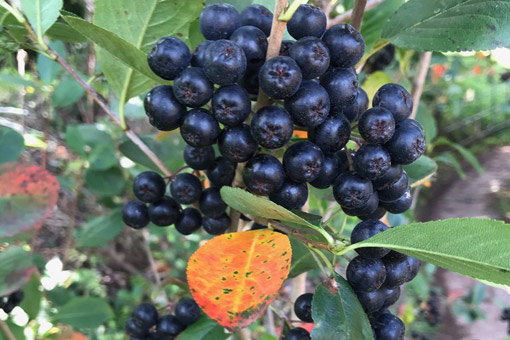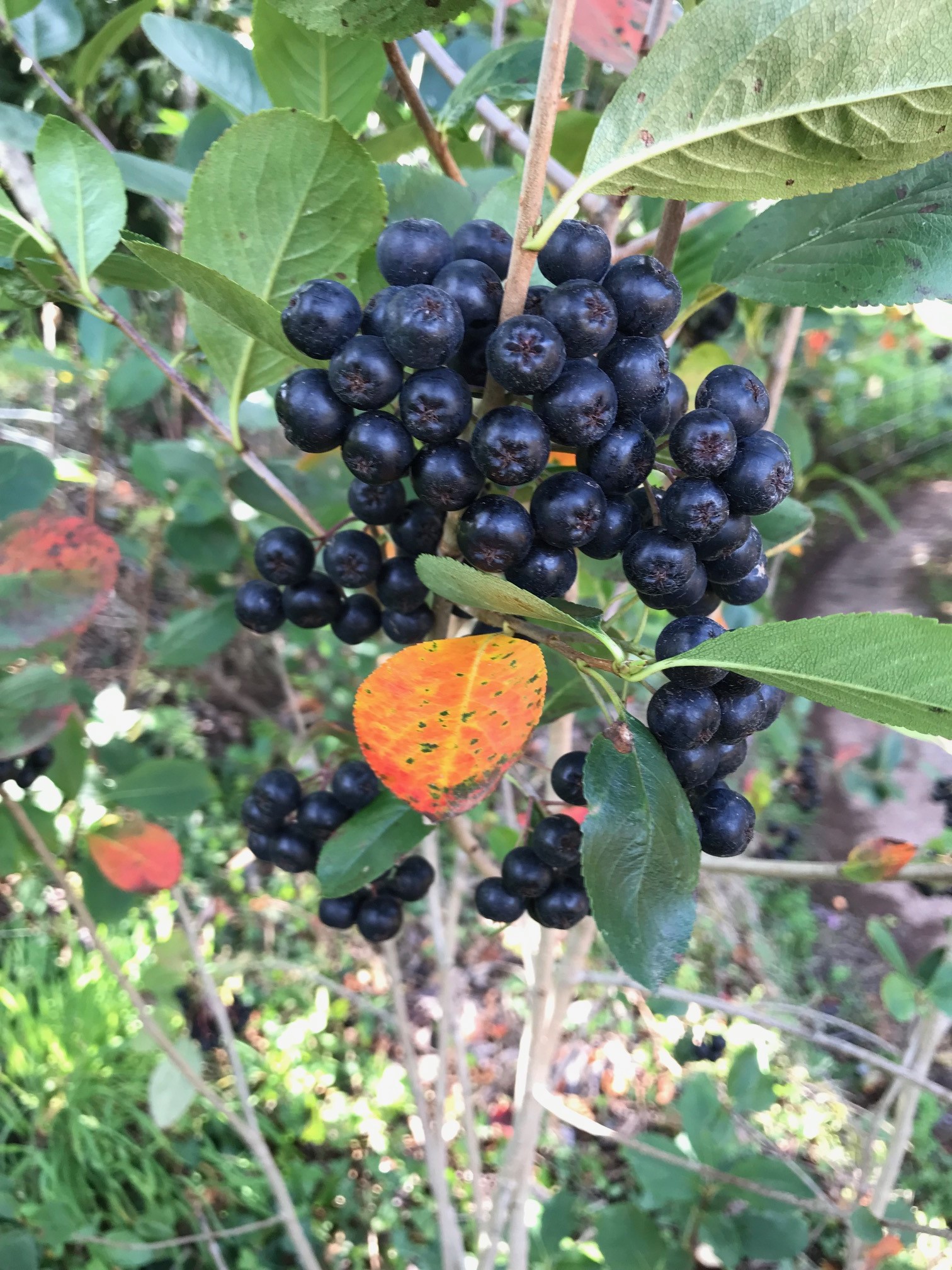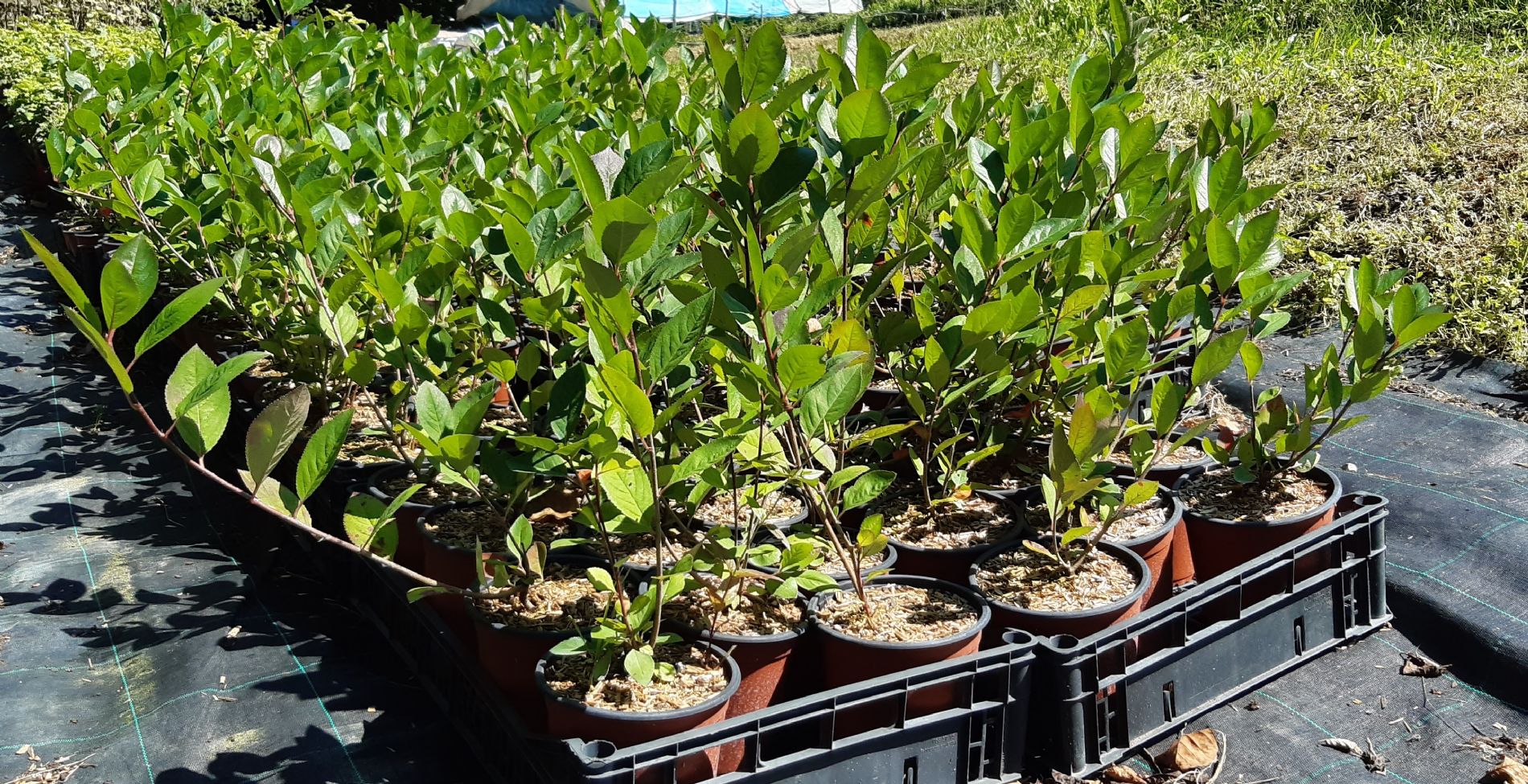
One of the best varieties that can be found from aronia. It is very productive, reaching up to 4-5 Kg per plant. Strong flavor, astringent, with a characteristic bitter touch of black fruit.

If you want to know the most complete information about the cultivation of aronia or chokeberry and all its characteristics and benefits click here .

Aronia is a genus of berry plants belonging to the Rosaceae family; They are medium-sized bushes, with beautiful white flowers that produce black or red fruits. Like other berries, such as blueberries, currants, raspberries or blackberries, it has a great interest both for its super-nutritious and beneficial fruits for our health, as well as for the great value it provides as an ornamental plant, being the perfect complement to our orchards, gardens or terraces.
There are 3 species of Aronia in nature; Aronia melanocarpa which is the aronia with black fruit called black chokeberry and Aronia arbutifolia the aronia that produces red fruits. And recently, the latest studies on the classification of aronia have created new specie, which is a natural hybridization of the previous 2, called Aronia prunifolia, which also produces black fruit and although the plant is almost similar to Aronia melanocarpa, its Leaves in fall take on a garish red color similar to red aronia plants.
As we have already mentioned, Aronia is a term that defines a genus of shrubs belonging to the Rosaceae family; The word aronia is the most common worldwide, although it is also known by other names, such as Aroniaberry or "Chokeberry" which is the English term with which the first European settlers nicknamed this fruit when they discovered it through the Indians of North America, where it is from.
Aronia is a very easy plant to grow thanks to its high resistance and its great adaptability to different climates and soil conditions. This resistance becomes evident in winter, being able to withstand temperatures up to 35 degrees below zero. In addition, it is found both in humid environments such as swamps or wooded areas, as well as in dry and sandy or stony environments such as roadsides, bushes, slopes or cliffs since it also tolerates saline mist from the sea and drought.
Aronia plants are medium-sized deciduous shrubs with several stems from the base, between 1 and 2 meters high. Aronia plants have deep dark green leaves on the top, while the underside is light green and both sides are soft to the touch. The leaves remain green throughout the summer and protect the fruits from sunlight. direct excessive. Once autumn arrives, they acquire beautiful yellow-orange-reddish tones, which will dye our orchards or terraces with spectacular colors.
The flower is white and bright, formed by 5 petals and its stamens have a characteristic and beautiful pink color. Normally, up to 15 flowers per cluster can be formed, even some authors speak of up to 30 flowers, these clusters are usually about 5cm in diameter. A great advantage of the late flowering of aronia is that the risk of frost is minimal, so it can be grown from high mountain areas to areas near the sea.
In mid-late August we can begin to harvest the first aronia fruits. In the case of Aronia melanocarpa, its fruits are totally black once they mature. The plant produces clusters of fruit that hang from jazzy red pedicels. The fruits are completely round and smaller than a blueberry. They measure 6 to 12 mm in diameter with a weight of approximately 1 gram.
An adult aronia plant in good condition can produce between 3-5 kg of fruit per season!
The consumption of aronia brings us great benefits to our health due to its high content of antioxidants, vitamins and minerals. But if aronia stands out in something, it is because of its high content of Anthocyanins (antioxidants) that are responsible for its black color.
The anti-inflammatory and antioxidant properties of aronia have recently led to research on its use as a functional food to help prevent diseases caused by oxidative stress, such as certain types of cancer, cardiovascular diseases and chronic inflammations.
In addition to its very high content of antioxidants such as anthocyanins, aronia fruits also contain high levels of folic acid, vitamin C, vitamin K, manganese and fiber.
